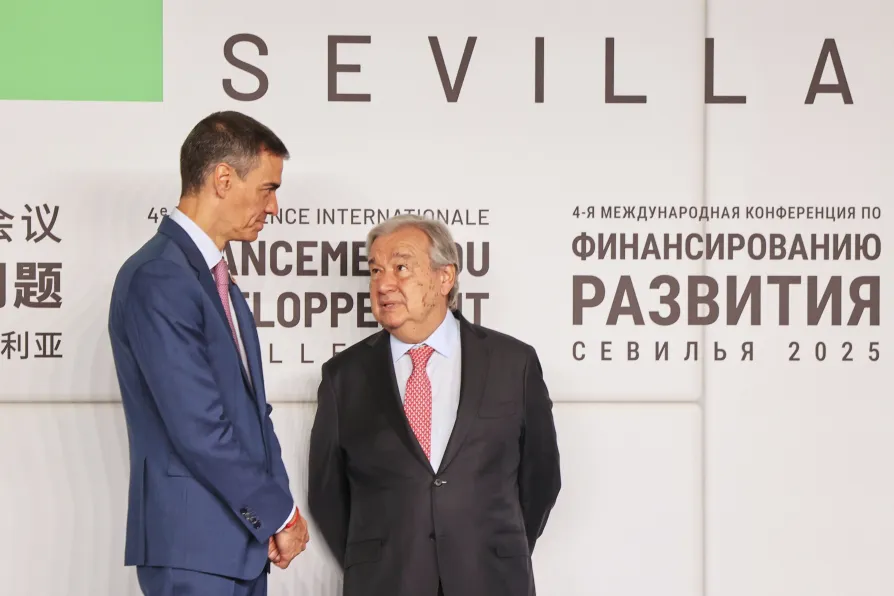
 Spain's Prime Minister Pedro Sanchez (left) speaks with Antonio Guterres, Secretary-General of the United Nations, during the four-day Financing for Development meeting in the southern city of Seville, Spain, June 30, 2025
Spain's Prime Minister Pedro Sanchez (left) speaks with Antonio Guterres, Secretary-General of the United Nations, during the four-day Financing for Development meeting in the southern city of Seville, Spain, June 30, 2025
REPRESENTATIVES of many countries gathered in Spain today for a conference on the growing gap between rich and poor nations.
United Nations secretary-general Antonio Guterres recognised the challenges to the four-day Financing for Development meeting in the southern city of Seville.
“Financing is the engine of development. And right now, this engine is sputtering,” Mr Guterres said.
“We are here in Seville to change course, to repair and rev up the engine of development to accelerate investment at the scale and speed required.”
The UN and Spain, the conference co-hosts, believe it is an opportunity to reverse the downward spiral, close the staggering $4 trillion (around £2.9 trillion) annual financing gap to promote development, bring millions of people out of poverty and help achieve the UN’s badly lagging Sustainable Development Goals for 2030.
Last year, 3.3 billion people were living in countries that pay more interest on their debts than they spend on health or education — and the number will increase to 3.4 billion people this year, said UN trade chief Rebeca Grynspan during a recent news conference.
She added that “development is going backward” and the global debt crisis has worsened.
Developing countries will pay $947 billion (£697bn) to service debts this year, up from $847 billion (£624bn) last year.
Spanish Prime Minister Pedro Sanchez told the conference of more than 70 world leaders, plus thousands of activists and financial institutions, that his government “believes that this summit is an opportunity for us to change course, for us to raise our voice in the face of those who seek to convince us that rivalry and competition will set the tone for humanity and for its future.”
At its last preparatory meeting on June 17, the United States rejected the 38-page outcome document that had been negotiated for months by the UN’s 193 member nations and announced its withdrawal from the process and from the Seville conference.
UN deputy secretary-general Amina Mohammed said last week that “many of the recommendations you see cannot be pursued without a continuous engagement with the US.”
The document launches what it describes as “an ambitious package of reforms and actions to close the financing gap with urgency.”
The package includes proposals for a minimum tax revenue of 15 per cent of a country’s gross domestic product to increase government resources and reforms to help countries deal with rising debt.

Europe is acquiescing in Trump’s manoeuvrings — where Europe takes over the US forever war in Ukraine while Washington gets ready for a future fight with China. And it’s working people who will be left paying the price, says DIANE ABBOTT MP












![A star fish near a beach [Pic: Jakob Owens]]( https://msd11.gn.apc.org/sites/default/files/styles/low_resolution/public/2025-05/jakob-owens-n5wwck8ES4w-unsplash.jpg.webp?itok=3CusZHPg)
